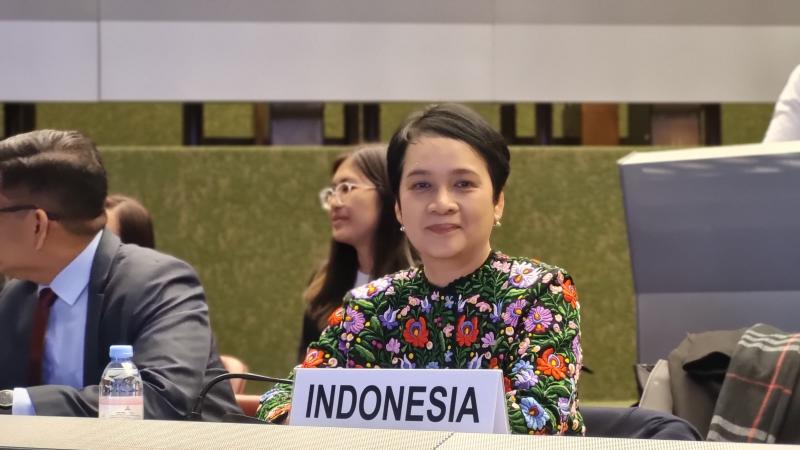
|
Getting your Trinity Audio player ready...
|
The principle of inclusivity is key to ensuring the rapid progress of the digital economy can anticipate new challenges and narrow existing gaps. For instance, generative Artificial Intelligence (AI) can add up to US$4.4 Trillion. Of course, this added value will materialise for the global economy every year when well-regulated. Therefore, a synergistic strategy is needed at the worldwide level to align the pace of technological growth with each country’s readiness and digital capacity.
Secretary-General of the Ministry of Communication and Information, Mira Tayyiba, emphasised that Indonesia can seriously address the implementation of a vision and a global economic strategy that is inclusive and sustainable. In this context, Mira identified three main elements that serve as the foundation for Indonesia’s approach to the global economy:
- The centrality of human aspects, emphasised as “human-centricity,” demonstrates Indonesia’s commitment to ensuring that economic development provides material benefits and enhances the well-being and justice of the entire society.
- The commitment to coexist and collectively create a fair playing field underscores the importance of cooperation and equality in creating a fair economic environment.
- Mira Tayyiba highlighted the need for fair and equal opportunities for everyone to develop, creating a foundation that stimulates inclusive and sustainable growth.

By focusing on implementing inclusive and sustainable principles in the context of the digital economy, Indonesia declares its determination to be an active global player in the digital realm and a pioneer in creating an economic model that benefits all layers of society.
Regarding the first element, Mira emphasised that digital technology needs to be developed by considering its latest aspects and respecting human values and diversity.
Further, she provided examples of cases such as misinformation and disinformation produced by AI that caused socio-political turmoil. The biased facial recognition software against certain social groups also led to wrongful arrests by authorities. “All of these serve as a reminder that the development of digital technology must prioritise the centrality of human aspects,” she emphasised.
The second element relates to collaborative solutions between developed and developing countries, technology producers and users, and global technology companies and local industry players. Collaborations are crucial, considering the rapid progress of technology can create economic imbalances that may pose new problems for developing countries.
The third element, related to fair and equal opportunities for all layers of society to thrive in the digital era, is essential in building the future of an inclusive and sustainable digital economy. Mira explained a series of efforts and concrete steps considered necessary for all countries to face the dynamics of the digital era. One key aspect raised is the provision of digital connectivity that is not only accessible to all layers of society but also affordable and adequate. In facing global challenges in the digital economy, equal access to digital connectivity is the main foundation to ensure that all segments of society can feel the benefits of the digital revolution.
Additionally, Mira highlighted the importance of facilitating literacy and digital skills training. Recognising that digital transformation is not only related to physical infrastructure but also requires mastery of relevant digital skills, the Ministry of Communication and Information proposed the need for support for training programmes to enhance digital literacy among the public. This includes not only the use of hardware and software but also a deep understanding of the impact of digitisation on various aspects of life.
The importance of addressing the threat of technology misuse also becomes a focus in the view of the Ministry of Communication and Information. In efforts to create a safe digital ecosystem, protecting the public from the potential misuse or exploitation of technology is a top priority. This includes efforts to ensure that existing regulations and policies can effectively address new challenges that emerge with technological advancements.
Several international organisations focused on economic development, and leaders from the private sector convened at a meeting to exchange perspectives on guaranteeing a digital economy that is accessible to all. “Ensuring an inclusive process in the global digital strategy is crucial, and this strategy must be able to withstand the existing dynamics,” emphasised Rebecca Grynspan, Secretary-General of the United Nations Conference on Trade and Development (UNCTAD).
In an era where digital transformation is increasingly dominating, Indonesia sees it as essential to take a proactive role in ensuring that the entire population can enjoy the positive impacts of digital economic growth, ensuring that no one is left behind in the fourth industrial revolution era.
















